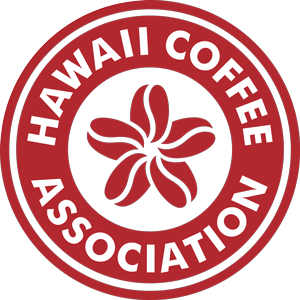WASHINGTON, May 27, 2021 – The U.S. Department of Agriculture (USDA) Farm Service Agency (FSA) today announced that fiscal year 2020 payments for the Reimbursement Transportation Cost Payment Program (RTCP) will begin on May 28, 2020. The RTCP will help eligible farmers and ranchers outside the contiguous U.S., including those in Alaska, offset a portion of the cost of transporting agricultural products over long distances.
The Consolidated Appropriations Act of 2019 reauthorized RTCP and allows farmers and ranchers in Alaska, Hawaii and insular areas including the Commonwealth of Puerto Rico, Guam, American Samoa, Commonwealth of Northern Mariana Islands, Virgin Islands of the United States, Federated States of Micronesia, Republic of the Marshall Islands and Republic of Palau, to recover any costs to transport agricultural commodities or inputs used to produce an agricultural commodity.
Signup for the 2020 program year increased by 28 applicants compared to the 2019 program year. Signup for the 2021 program will be announced in early summer.
RTCP payments are calculated based on the costs incurred for transportation of the agricultural commodity or inputs during a fiscal year, subject to an $8,000 per producer cap per fiscal year. Total 2020 claims exceeded available funding; therefore, payments to recipients will be reduced by a National payment factor of 0.8 percent.
Service Center staff continue to work with agricultural producers via phone, email, and other digital tools. Because of the pandemic, some USDA Service Centers are open to limited visitors. Contact your Service Center to set up an in-person or phone appointment. Additionally, more information related to USDA’s response and relief for producers can be found at farmers.gov/coronavirus.
USDA touches the lives of all Americans each day in so many positive ways. In the Biden-Harris Administration, USDA is transforming America’s food system with a greater focus on more resilient local and regional food production, fairer markets for all producers, ensuring access to healthy and nutritious food in all communities, building new markets and streams of income for farmers and producers using climate smart food and forestry practices, making historic investments in infrastructure and clean energy capabilities in rural America, and committing to equity across the Department by removing systemic barriers and building a workforce more representative of America. To learn more, visit www.usda.gov.
Enrollment Period Begins for USDA’s Reimbursement Transportation Cost Payment Program
Program Helps Offset Transporting Costs for Farmers and Ranchers Outside the Contiguous U.S.
HONOLULU, Hawaii, July 9, 2021 – The U.S. Department of Agriculture (USDA) in Hawaii opened enrollment today for the Reimbursement Transportation Cost Payment Program (RTCP) for fiscal year 2021. The enrollment period begins July 12 and will run through Sept. 3. “RTCP helps U.S. farmers and ranchers offset a portion of the cost of transporting agricultural products over long distances,” said Shirley Nakamura, Farm Service Agency (FSA) Acting State Executive Director. “This program helps U.S. farmers and ranchers outside the 48 contiguous states who are at a competitive disadvantage when transporting agriculture products to market.”
The Further Consolidated Appropriations Act, 2021 reauthorized RTCP and allows farmers and ranchers in Alaska, Hawaii and insular areas including the Commonwealth of Puerto Rico, Guam, American Samoa, Commonwealth of Northern Mariana Islands, Virgin Islands of the United States, Federated States of Micronesia, Republic of the Marshall Islands and Republic of Palau, to recover any costs to transport agricultural commodities or inputs used to produce an agricultural commodity.
RTCP payments are calculated based on the costs incurred for transportation of the agricultural commodity or inputs during a 12-month period, subject to an $8,000 per producer cap per fiscal year. If claims for payments exceed the funds available from the program for a fiscal year, payments will be reduced on a pro-rata basis.
Farmers and ranchers interested in participating in RTCP can obtain applications and other documents by calling toll-free 1-866-794-1079.
Dave K. Chun
Senior Policy Advisor
Congressman Kaialiʻi Kahele (HI-02)
1205 Longworth House Office Building | 202-225-4906
PDF of this News Release
